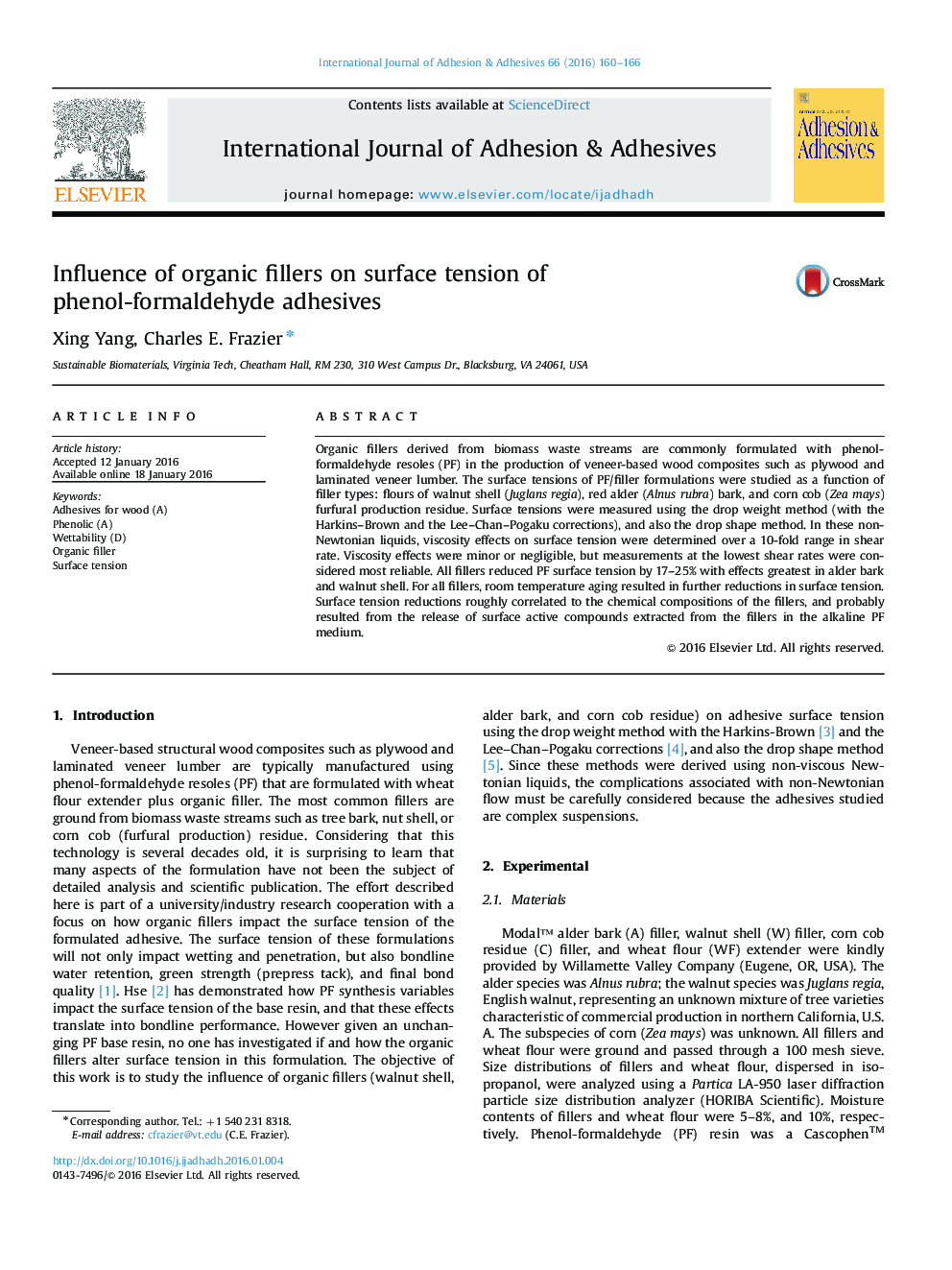| Article ID | Journal | Published Year | Pages | File Type |
|---|---|---|---|---|
| 776609 | International Journal of Adhesion and Adhesives | 2016 | 7 Pages |
Organic fillers derived from biomass waste streams are commonly formulated with phenol-formaldehyde resoles (PF) in the production of veneer-based wood composites such as plywood and laminated veneer lumber. The surface tensions of PF/filler formulations were studied as a function of filler types: flours of walnut shell (Juglans regia), red alder (Alnus rubra) bark, and corn cob (Zea mays) furfural production residue. Surface tensions were measured using the drop weight method (with the Harkins–Brown and the Lee–Chan–Pogaku corrections), and also the drop shape method. In these non-Newtonian liquids, viscosity effects on surface tension were determined over a 10-fold range in shear rate. Viscosity effects were minor or negligible, but measurements at the lowest shear rates were considered most reliable. All fillers reduced PF surface tension by 17–25% with effects greatest in alder bark and walnut shell. For all fillers, room temperature aging resulted in further reductions in surface tension. Surface tension reductions roughly correlated to the chemical compositions of the fillers, and probably resulted from the release of surface active compounds extracted from the fillers in the alkaline PF medium.
